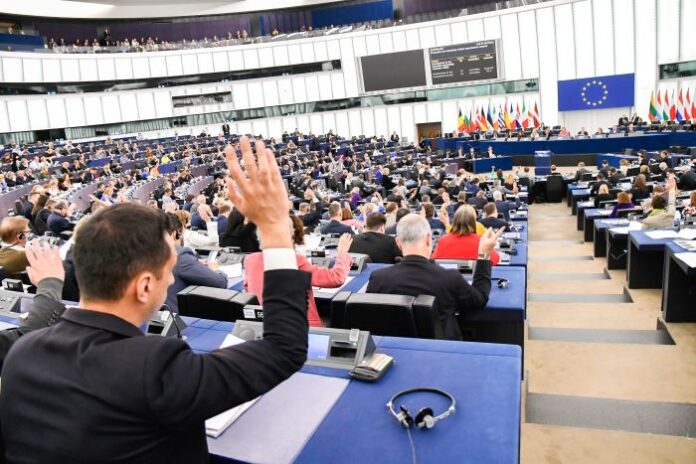The European Parliament has urged political leaders in the European Union and its member states to take immediate and robust action against Russian interference attempts. The call comes after the revelation of several Kremlin-backed attempts to undermine democratic processes in Europe.
On Thursday, MEPs adopted a resolution condemning these efforts, with 429 votes in favour, 27 against, and 48 abstentions. The Parliament is deeply concerned about allegations that some MEPs accepted payments to spread Russian propaganda and that others participated in the activities of “Voice of Europe,” a pro-Russian media outlet.
This situation is particularly alarming, given Russia’s ongoing illegal war of aggression against Ukraine. The European Parliament wants EU and member state leaders to tackle Russian interference efforts in EU institutions and throughout the Union. This is of utmost importance as the European elections are approaching on 6-9 June 2024.
Paying MEPs to spread propaganda
European lawmakers have expressed concern over suspected cases of Russian interference across Europe, including Bulgaria, Germany and Slovakia. MEPs are particularly concerned about the recent questioning of leading Alternative für Deutschland (AfD) MEP Maximilian Krah by the U.S. Federal Bureau of Investigation (FBI). The FBI suspects that Krah received money from Kremlin agents. Additionally, Krah’s parliamentary assistant was arrested in Germany on April 23, 2024, on charges of being a Chinese spy. The Parliament has called on the AfD to disclose their financial relations, especially with the Kremlin, publicly, and to reveal the purpose and exact amount of all payments from Kremlin-linked sources.
Joint and vigorous response needed to counter interference
MEPs have stated that Russia is the primary source of foreign interference and disinformation in the EU. However, more countries are also involved in these activities. MEPs emphasise that a comprehensive and long-term policy approach, jointly carried out by the EU and its member states, is the only effective response to these threats.
The resolution recommends enhancing its internal security culture, including conducting thorough internal investigations to identify potential cases of foreign interference, enforcing its internal sanctions framework, and providing mandatory security training for MEPs and staff, appropriate security clearance, and reinforced staff screening to strengthen the Parliament’s defences.
The resolution calls on the Council to include Kremlin-backed media outlets, other broadcasting and media organisations, and individuals responsible for propaganda and disinformation campaigns in the EU in the forthcoming 14th Russian sanctions package.
MEPs want the EU to adopt the same sanctions as the Czech government against “Voice of Europe,” Ukrainian pro-Russian oligarch Viktor Medvedchuk, and his close associate Artem Marchevskyi. They also condemn “Voice of Europe’s” ability to restart its operations from Kazakhstan and urge EU member states to ensure that it cannot be accessed in the EU.

